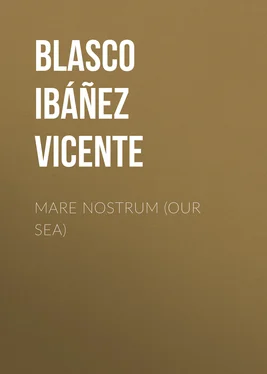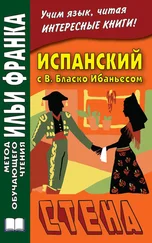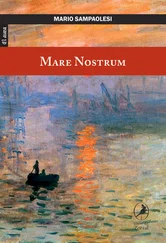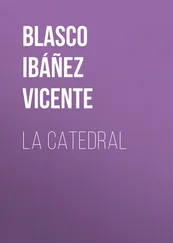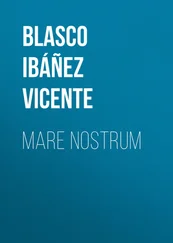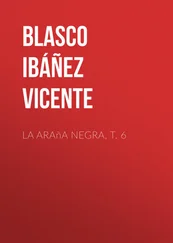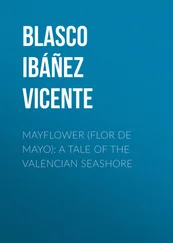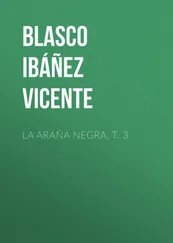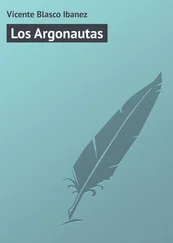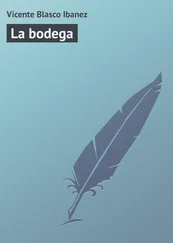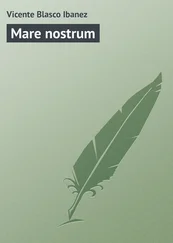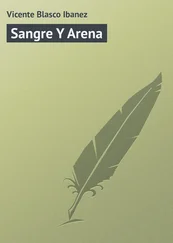Vicente Blasco Ibáñez - Mare Nostrum (Our Sea)
Здесь есть возможность читать онлайн «Vicente Blasco Ibáñez - Mare Nostrum (Our Sea)» — ознакомительный отрывок электронной книги совершенно бесплатно, а после прочтения отрывка купить полную версию. В некоторых случаях можно слушать аудио, скачать через торрент в формате fb2 и присутствует краткое содержание. Жанр: foreign_prose, foreign_antique, на английском языке. Описание произведения, (предисловие) а так же отзывы посетителей доступны на портале библиотеки ЛибКат.
- Название:Mare Nostrum (Our Sea)
- Автор:
- Жанр:
- Год:неизвестен
- ISBN:нет данных
- Рейтинг книги:5 / 5. Голосов: 1
-
Избранное:Добавить в избранное
- Отзывы:
-
Ваша оценка:
- 100
- 1
- 2
- 3
- 4
- 5
Mare Nostrum (Our Sea): краткое содержание, описание и аннотация
Предлагаем к чтению аннотацию, описание, краткое содержание или предисловие (зависит от того, что написал сам автор книги «Mare Nostrum (Our Sea)»). Если вы не нашли необходимую информацию о книге — напишите в комментариях, мы постараемся отыскать её.
Mare Nostrum (Our Sea) — читать онлайн ознакомительный отрывок
Ниже представлен текст книги, разбитый по страницам. Система сохранения места последней прочитанной страницы, позволяет с удобством читать онлайн бесплатно книгу «Mare Nostrum (Our Sea)», без необходимости каждый раз заново искать на чём Вы остановились. Поставьте закладку, и сможете в любой момент перейти на страницу, на которой закончили чтение.
Интервал:
Закладка:
For him, doubts were never very long nor painful affairs. Forward march! Let every one get out of such matters as best he could. And one evening when Cinta was going from the parlor to her aunt's bedroom in order to bring her a devotional book, she collided with Ulysses in the passageway.
If she had not known him, she might have trembled for her existence. She felt herself grasped by a pair of powerful hands that lifted her up from the floor. Then an avid mouth stamped upon hers two aggressive kisses. "Take that and that!"… Ferragut repented on seeing his cousin trembling against the wall, as pale as death, her eyes filled with tears.
"I have hurt you. I am a brute … a brute!"
He almost fell on his knees, imploring her pardon; he clenched his fists as if he were going to strike himself, punishing himself for his audacity. But she would not let him continue…. "No, No!…" And while she was moaning this protest, her arms were forming a ring around Ulysses' neck. Her head drooped toward his, seeking the shelter of his shoulder. A little mouth united itself modestly to that of the sailor, and at the same time his beard was moistened with a shower of tears.
And they said no more about it.
When, weeks afterward, Doña Cristina heard her son's petition, her first movement was one of protest. A mother listens with benevolent appreciation to any request for the hand of her daughter, but she is ambitious and exacting where her son is concerned. She had dreamed of something so much more brilliant; but her indecision was short. That timid girl was perhaps the best companion for Ulysses, after all. Furthermore the child was well suited to be the wife of a man of the sea, having seen its life from her infancy…. Good-by Professor!
They were married. Soon afterwards Ferragut, who was not able to lead an inactive life, returned to the sea, but as first officer of a transatlantic steamer that made regular trips to South America. To him this seemed like being employed in a floating office, visiting the same ports and invariably repeating the same duties. His mother was extremely proud to see him in uniform. Cinta fixed her gaze on the almanac as the wife of a clerk fixes it on the clock. She had the certainty that when three months should have passed by she would see him reappear, coming from the other side of the world laden down with exotic gifts, just as a husband who returns from the office with a bouquet bought in the street.
Upon his return from his first two voyages, she went to meet him on the wharf, her eager glance searching for his blue coat and his cap with its band of gold among the transatlantic passengers fluttering about the decks, rejoicing at their arrival in Europe.
On the following trip, Doña Cristina obliged her to remain at home, fearing that the excitement and the crowds at the harbor might affect her approaching maternity. After that on each of his return trips Ferragut saw a new son, although always the same one; first it was a bundle of batiste and lace carried by a showily-uniformed nurse; then by the time he was captain of the transatlantic liner, a little cherub in short skirts, chubby-cheeked, with a round head covered with a silky down, holding out its little arms to him; finally a boy who was beginning to go to school and at sight of his father would grasp his hard right hand, admiring him with his great eyes, as though he saw in his person the concentrated perfection of all the forces of the universe.
Don Pedro, the professor, continued visiting the house of Doña Cristina, although with less assiduity. He had the resigned and coldly wrathful attitude of the man who believes that he has arrived too late and is convinced that his bad luck was merely the result of his carelessness…. If he had only spoken before! His masculine self-importance never permitted him to doubt that the young girl would have accepted him jubilantly.
In spite of this conviction, he was not able to refrain at times from a certain ironical aggressiveness which expressed itself by inventing classic nicknames. The young wife of Ulysses, bending over her lace-making, was Penelope awaiting the return of her wandering husband.
Doña Cristina accepted this nickname because she knew vaguely that Penelope was a queen of good habits. But the day that the professor, by logical deduction, called Cinta's son Telemachus, the grandmother protested.
"He is named Esteban after his grandfather…. Telemachus is nothing but a theatrical name."
On one of his voyages Ulysses took advantage of a four-hour stop in the port of Valencia to see his godfather. From time to time he had been receiving letters from the poet,—each one shorter and sadder,—written in a trembling script that announced his age and increasing infirmity.
Upon entering the office Ferragut felt just like the legendary sleepers who believe themselves awaking after a few hours of sleep when they have really been dozing for dozens of years. Everything there was still just as it was in his infancy:—the busts of the great poets on the top of the book-cases, the wreaths in their glass cases, the jewels and statuettes, prizes for successful poems—were still in their crystal cabinets or resting on the same pedestals; the books in their resplendent bindings formed their customary close battalions the length of the bookcases. But the whiteness of the busts had taken on the color of chocolate, the bronzes were reddened by oxidation, the gold had turned greenish, and the wreaths were losing their leaves. It seemed as though ashes might have rained down upon perpetuity.
The occupants of this spell-bound dwelling presented the same aspect of neglect and deterioration. Ulysses found the poet thin and yellow, with a long white beard, with one eye almost closed and the other very widely opened. Upon seeing the young officer, broad-chested, vigorous and bronzed, Labarta, who was huddled in a great arm chair, began to cry with a childish hiccough as though he were weeping over the misery of human illusions, over the brevity of a deceptive life that necessitates continual renovation.
Ferragut found even greater difficulty in recognizing the little and shrunken señora who was near the poet. Her flabby flesh was hanging from her skeleton like the ragged fringe of past splendor; her head was small; her face had the wrinkled surface of a winter apple or plum, or of all the fruits that shrink and wither when they lose their juices. "Doña Pepa!…" The two old people were thee-ing and thou-ing each other with the tranquil non-morality of those that realize that they are very near to death, and forget the tremors and scruples of a life crumbling behind them.
The sailor shrewdly suspected that all this physical misery was the sad finale of an absurd, happy-go-lucky and childish dietary,—sweets serving as the basis of nutrition, great heavy rice dishes as a daily course, watermelons and cantaloupes filling in the space between meals, topped with ices served in enormous glasses and sending out a perfume of honeyed snow.
The two told him, sighing, of their infirmities, which they thought incomprehensible, attributing them to the ignorance of the doctors. It was really the morbid wasting away that suddenly attacks people of the abundant, food-yielding countries. Their life was one continual stream of liquid sugar…. And yet Ferragut could easily guess the disobedience of the two old folks to the discipline of diet, their childish deceptions, their cunning in order to enjoy alone the fruits and syrups which were the enchantment of their existence.
The interview was a short one. The captain had to return to the port of Grao where his steamer was awaiting him, ready to weigh anchor for South America.
The poet wept again, kissing his god-son. He never would see again this Colossus who seemed to repel his weak embraces with the bellows of his respiration.
Читать дальшеИнтервал:
Закладка:
Похожие книги на «Mare Nostrum (Our Sea)»
Представляем Вашему вниманию похожие книги на «Mare Nostrum (Our Sea)» списком для выбора. Мы отобрали схожую по названию и смыслу литературу в надежде предоставить читателям больше вариантов отыскать новые, интересные, ещё непрочитанные произведения.
Обсуждение, отзывы о книге «Mare Nostrum (Our Sea)» и просто собственные мнения читателей. Оставьте ваши комментарии, напишите, что Вы думаете о произведении, его смысле или главных героях. Укажите что конкретно понравилось, а что нет, и почему Вы так считаете.
